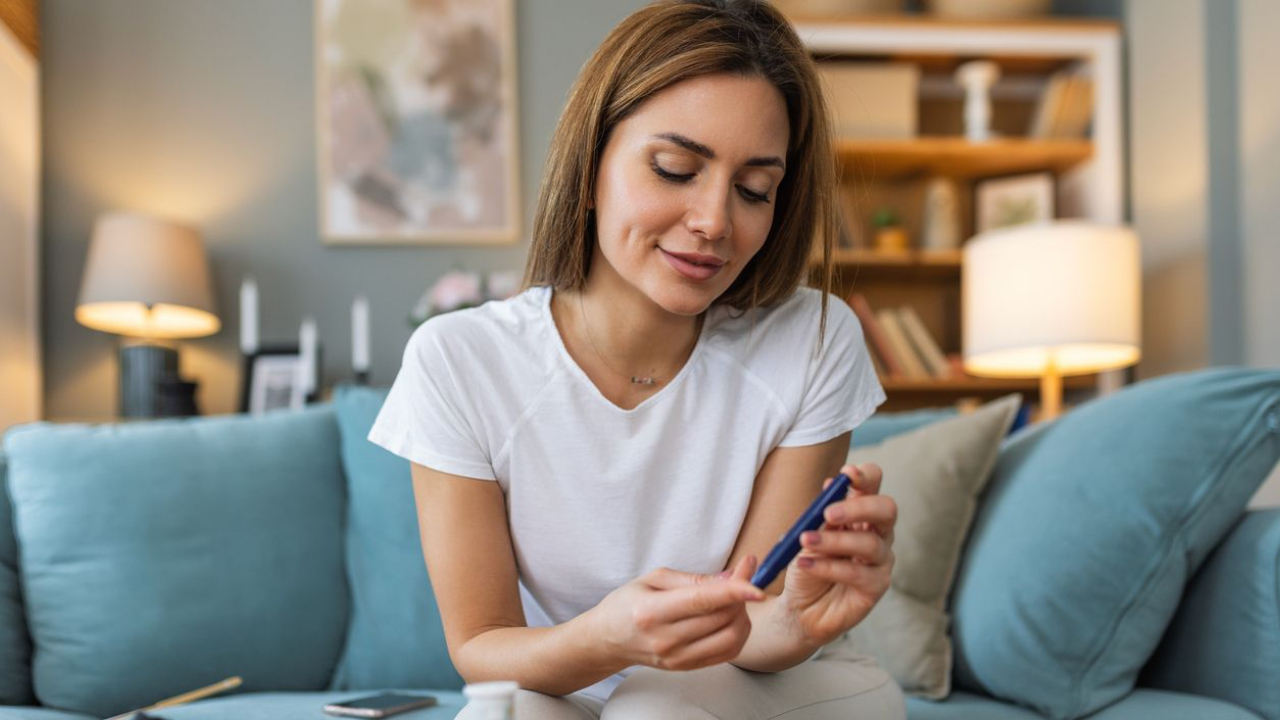How to Boost Fertility in Your 30s
Jan 27, 2025
Your 30s can be an exciting time to start or grow your family, but for many women, this stage of life comes with questions and concerns about fertility. Is age really a major factor? How can you support your body for a healthy pregnancy?
The truth is, while fertility does decline with age, many women have healthy pregnancies well into their 30s and beyond. Understanding how to boost fertility in your 30s and taking proactive steps to support your body can make all the difference.
If you’re feeling worried, you’re not alone—and the good news is, there are concrete actions you can take to improve your chances of conceiving. From nourishing your body with the right foods to making lifestyle adjustments, this guide will help you understand how to boost fertility naturally and set yourself up for success.
For a deeper dive into preconception health, download my Foundational Preconception & Fertility Guidelines—a free resource to help you build a strong foundation for your fertility journey.
Understanding Fertility in Your 30s
Women are born with all the eggs they will ever have—around 2 million at birth. By the time you reach 37, that number typically decreases to about 25,000. While fertility begins to decline around age 35, many women still have healthy pregnancies well into their late 30s and beyond.
It’s important to remember that fertility challenges aren’t solely attributed to egg quality. Roughly one-third of subfertility or infertility cases are linked to female factors, one-third to male factors, and one-third to a mix of both or unexplained causes.
For women wondering how to boost fertility in your 30s, the key is understanding your body and making small, impactful changes that support your reproductive health.
Steps to Boost Fertility in Your 30s
Here are some science-backed ways to support your fertility and understand how to boost fertility naturally:
1. Nourish Your Body with the Right Foods
A nutrient-rich diet is foundational for fertility. Focus on:
- Regulating blood sugar: Front-load your meals with a larger breakfast and lunch, and keep dinner smaller.
- Adding nutrient-dense foods: Include plenty of vegetables, healthy fats (like avocado and olive oil), lean proteins, and whole grains.
- Avoiding toxins in food: Opt for organic produce and clean, sustainably sourced fish when possible.
2. Limit Exposure to Toxins
Environmental toxins can impact both egg and sperm quality. Reduce your exposure by:
- Filtering your water.
- Choosing clean, toxin-free beauty and household products.
- Avoiding plastics in general.
- Eating organic and avoiding pesticide-laden foods.
- Improving air quality in your home with HEPA filters and air purifying plants.
3. Get the Right Amount of Exercise
Regular physical activity can support hormone balance and overall health, but moderation is key:
- Aim for 30 minutes of moderate exercise daily, with strength training 2–3 times weekly.
- Avoid over-exercising; more than five hours of intense exercise weekly can negatively impact fertility.
- Include gentle movement throughout your day, like walking and stretching.
4. Prioritize Sleep
Quality sleep is essential for hormone regulation. Aim for:
- 7–8 hours per night, with key hours of rest from 10 PM–6 AM.
- A cool, dark, and quiet sleep environment.
- Limiting screen time and stimulants before bed.
- Morning exposure to natural light to support your circadian rhythm.
5. Reduce Stress
Chronic stress can interfere with reproductive hormones. Incorporate relaxation techniques like:
- Yoga, meditation, or deep breathing.
- Acupuncture or massage.
- Journaling or reading.
- Spending quality time with friends and family—and don’t underestimate the power of laughter!
6. Time and Frequency of Intercourse
Timing is everything when it comes to conception. To optimize your chances:
- Have intercourse every 1–2 days starting on day 7 of your cycle and continuing until a few days after ovulation.
- Remember, sperm can survive in the body for up to 5 days, so the best chances are 1–3 days before ovulation.
7. Track Ovulation
Tools like ovulation kits, basal body temperature tracking, and monitoring cervical mucus can help you pinpoint your fertile window. If you’re not ovulating regularly, addressing the root cause through diet, exercise, or supplementation may help. It’s important to consider working with a fertility specialist to get the proper support.
8. Avoid Harmful Lifestyle Habits
Certain habits can negatively impact fertility. Limit or eliminate:
- Smoking, vaping, and recreational drug use.
- Excessive caffeine or alcohol consumption.
- Overly vigorous exercise.
- Poor sleep patterns, such as shift work.
- Exposure to EMR (electromagnetic radiation).
- Handling cat litter boxes (toxoplasmosis risk).
9. Support Sperm Health
Male fertility is just as important. Studies show that men who wear boxers more frequently have higher sperm counts compared to those who don’t. Encouraging your partner to wear loose-fitting underwear, eat a balanced diet, and maintain a healthy lifestyle can make a big difference.
Fertility in Your 30s: A Holistic Perspective
Fertility isn’t just about one factor—it’s a combination of many interconnected pieces. You can significantly improve your chances of conception by making simple, intentional changes to your diet, lifestyle, and habits.
If you’re ready to take your fertility journey to the next level, grab our Foundational Preconception & Fertility Guidelines. This free resource is packed with actionable advice to help you feel confident and empowered every step of the way.
Your 30s can be an exciting and fulfilling time to grow your family. With the right strategies and support, you can feel confident in your ability to navigate this journey successfully.
Sources:
https://pmc.ncbi.nlm.nih.gov/articles/PMC5504800/
https://fertilityresearchandpractice.biomedcentral.com/articles/10.1186/s40738-015-0003-4
https://pubmed.ncbi.nlm.nih.gov/30102388/
https://pmc.ncbi.nlm.nih.gov/articles/PMC6079277/
https://pmc.ncbi.nlm.nih.gov/articles/PMC5733907/
https://www.ncbi.nlm.nih.gov/books/NBK576440/
https://www.britishfertilitysociety.org.uk/fei/at-what-age-does-fertility-begin-to-decrease/
Unlock Your Hormone Health With Our Free Checklist
You deserve to know what is going on with your body and to understand why (or even IF) you have hormonal imbalances.
So we created this FREE resource to help guide you with some of the top labs and tests to consider.







